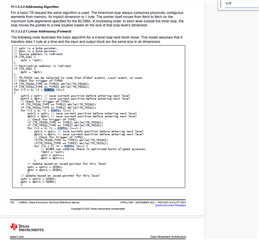Other Parts Discussed in Thread: AM62A74, AM6442, AM62A7
Tool/software:
Hello TI dev,
I am trying to develop a project to enable data transfer from ADC to DSP(AM62A74) via GPMC.
First, I tried to develop a simple code to transfer data from source buffer to destination buffer using BCDMA. The below project was taken from UDMA example in MCU-SDK v10. The default setting of data transfer is given in 4D data block transfer. With a default setting (CSL_UDMAP_TR_FLAGS_TYPE_4D_BLOCK_MOVE_REPACKING_INDIRECTION), it worked properly. However, the given data I am working on is a 3D data. I changed from CSL_UDMAP_TR_FLAGS_TYPE_4D_BLOCK_MOVE_REPACKING_INDIRECTION to CSL_UDMAP_TR_FLAGS_TYPE_3D_DATA_MOVE to enabling the 3D data transfer. However, with the modification, the program did not execute. I commented out all related to 4D data block and still could not display data transfer. Could you please let me know what I should do? Please enlighten me on this issue. Thank you.
empty_am62ax-sk_c75ss0-0_freertos_ti-c7000.zip
Regards,
Key


